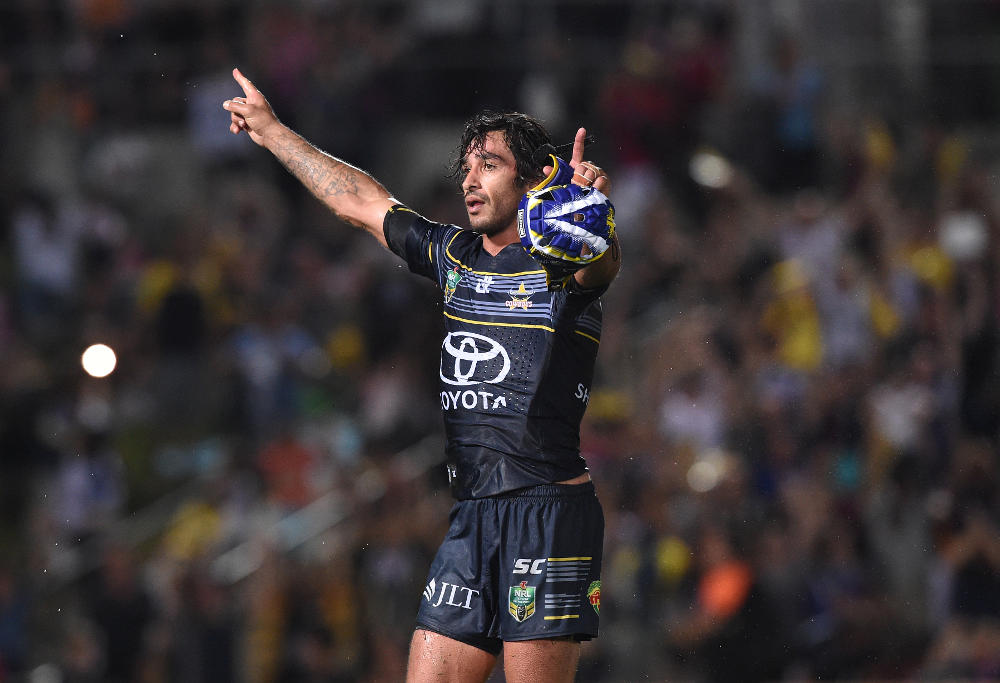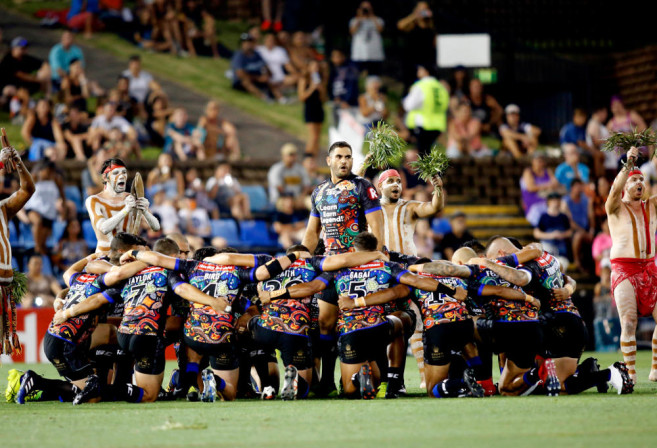Bravo, Todd Greenberg. You’ve finally got something right.
Each year, the annual All Stars clash has been met with fierce criticism. Given the increasing concern over player welfare, the concept was scrapped last year as an unnecessary addition to an already busy off-season schedule that included the Rugby League World Cup.
However, the match is anything but unnecessary – it is crucial.
And the reinvention of the concept, which will now pit the Indigenous All Stars against the New Zealand Maori, is a big win for rugby league’s first nations peoples.
Rugby league has traditionally had strong ties with Indigenous communities.
The code was the first to allow Indigenous teams and players into its competition and the relationship was so strong that by 1973, Arthur Beetson, an Indigenous player, captained the national team.
This link has only grown stronger, with 12 per cent of current NRL first graders having Aboriginal heritage.
This year’s State of Origin series also saw seven Aboriginal players selected – Latrell Mitchell, James Roberts, Josh Addo-Carr and Tyrone Peachey for the Blues, and Greg Inglis, Dane Gagai and Will Chambers for the Maroons.
One of the greatest on-field ambassadors will be lost at the end of the year though, with Johnathan Thurston retiring after 16 years at the Canterbury Bulldogs and North Queensland Cowboys.

Johnathan Thurston: one of the NRL’s best. (AAP Image/Dave Hunt)
His list of accolades includes four Dally M Player of the Year medals, holding the record as Origin’s all-time highest points scorer, and Indigenous halfback of the century.
Then there’s his work with Indigenous communities off the field, which saw him honoured as Queensland’s Australian of the Year in 2017.
At grassroots level, 17 per cent of rugby league’s participants are of Aboriginal heritage, compared to the 2.8 per cent that makes up the Australian population according to the 2016 census.
Indigenous teams also come together for the annual New South Wales Koori Knockout, which emerged in the early 1970s in the background of a developing political movement in Redfern for self-determination and justice.
This year even saw the introduction of the Festival of Indigenous Rugby League, which celebrated the strong connection between Maori, Aboriginal and Torres Strait Islander peoples.
The point of all this? The Indigenous All Stars clearly meant a lot to Aboriginal communities who grew up loving the game.
It represented a public celebration of their culture and the role that Indigenous people, both past and present, have played in contributing to our sport at both a professional and local level.

(AAP Image/Darren Pateman)
However, every time someone challenged the purpose of the match, they weren’t challenging the need for an Indigenous side.
Instead, it had a lot more to do with their opposition.
Who, in their right mind, would really get behind a team that represented the world?
This wasn’t Origin, the success of which has been built upon intense state bragging rights.
It was a gimmick that held little meaning. And it was telling in the number of players that pulled out.
In the 2017 edition, seven players withdrew from the initial squad, leaving the World All Stars decimated.
And if you look through the names of the 20 players who lined up for Mal Meninga’s side, it is clear that this wasn’t a team of ‘All Stars’ like it claimed.
The team also consisted of players from ten different nations, including Australia, New Zealand, Fiji and Papua New Guinea.
While it certainly represented the diversity of our game, the side lacked the unifying qualities that the Indigenous All Stars squad had.
Last year’s World Cup proved that our appreciation for the international game is far stronger when we witness each nation stand on its own, proudly playing for its own culture.
The New Zealand Maori outfit will offer the Indigenous squad the respect deserved. They represent a proud culture and an opponent that people can actually connect with.
The previous Indigenous All Stars fixture was instead overshadowed by the constant withdrawals from the opposition.
No longer will the match’s worth be questioned.
The new concept demands a spot in the rugby league calendar.































































































